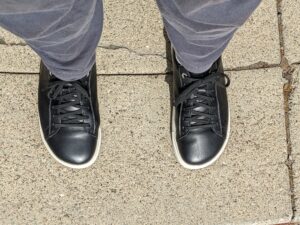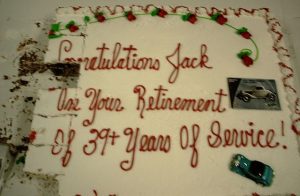I’ve had my COVID update jab today. This means I’ll be clear in a few weeks and can maybe be a bit social. Unfortunately, I’m also one of those people who are COVID-vulnerable and who has a charming long and painful reaction to the vaccine.
Instead of a real post this week (and maybe next week and the week after, it depends on how long it takes to get through this) I thought you might like something from my past. Three things, in fact. If you scratch below the surface you’ll see a suggestion about how I approach the terrible things happening this month. The posts aren’t about that, however. The posts are about what I was thinking 15-16 years ago. The novels I was writing then were “The Time of the Ghosts” and “Poison and Light.” Both of them are still in print (“The Time of the Ghosts in its umpteenth edition, and “Poison and Light in its first) and the cover of “Poison and Light” contains artwork by Lewis Morley, who entirely understood my thoughts and dreams about the world of the novel. For a change, instead of saying “This book may be out one day, if I’m lucky” I can send you to the exact stories I wrote about, way back then. There aren’t many advantages to getting significantly older, but this is one of them…
(2007-11-26 21:45)
I need to tell you a story.
Once upon a time I was still active in the Jewish Community. At work on Friday afternoon I answered the phone and at the other end was a frantic community leader. “Gillian, you have to come to synagogue tomorrow, it’s very important.” He couldn’t tell me why. All he knew was that he had received a phone call from a well-known Melbourne rabbi (who had never met me) saying that Gillian Polack had to be at synagogue on Saturday morning. The rabbi knew I didn’t usually go to Shul, too, and he had said very firmly to “make sure she’s there”.
I couldn’t arrange a lift, so I hopped on my two busses very early and walked the half mile or so at the other end and found the Progressive Service and looked around for any reason I might have been summoned.
In front of me was a visiting cantor (but visiting from overseas – no links with me or mine), the backs of heads of the usual congregants, and about thirty aging pates. The usual congregants kept sneaking back to me to find out why I was there “Is there something happening this afternoon that wasn’t advertised?”
I whispered a question about the thirty heads to one of them and he whispered back “visitors from Melbourne, doing a tour – nothing to do with the cantor.” Somewhere in that crowd of heads probably lay my answer.
The service ended. Everyone stood up. The visiting group turned round to survey the back of the hall. I heard a woman’s voice cry, “There she is,” and one elderly lady ploughed out of the mob and towards me. The others all followed, like sheep. Some of them knew me, most of them were simply following their natural leader.
Valda is a friend. Except that it’s now “Valda was a friend”. I don’t believe it yet. Mum told me about her funeral just fifteen minutes ago.
She was nearly ninety and we just got on well. We snarked together at conferences and we stirred her kid brother (a close friend of my father’s and another friend of mine – the two of us have stood to the side at parties and brought down the tone of the proceedings since I was a teen) and we did a lot of very good volunteer work together. She died in her sleep, her life a resounding success.
I will miss Valda for a very very long time. And I will always remember how many people went into operation to make sure we got to chat when she was in Canberra. She could have rung me or she could have told my mother, but Valda simply told everyone she wanted to see me and – because it was Valda and we all loved her – everyone made sure it happened.
I will also never ever forget that horde of touring retirees descending on me. I was a whistle-stop for the Canberra part of their bus trip. And I bet Valda knew this when she called out “There she is.”
For the record, the questions were mostly about my Melbourne family. Also for the record, I asked in response “You’ve been away for a week and you miss them?” Valda hasn’t even been away a week and already there’s a hole in my life.


 For the past few decades, whenever I have seen an ad that says something like “The SFPD is hiring” or “You could be a police dispatcher” or something like that, there is a small, weird part of me that thinks, maybe I should apply for that. Despite the fact that I hate job hunting, and despite the fact that I don’t want to be a firefighter or police officer (and am well past the age where my application would produce anything but laughter). The urge to figure out the next thing is still deeply massaged into my psyche.
For the past few decades, whenever I have seen an ad that says something like “The SFPD is hiring” or “You could be a police dispatcher” or something like that, there is a small, weird part of me that thinks, maybe I should apply for that. Despite the fact that I hate job hunting, and despite the fact that I don’t want to be a firefighter or police officer (and am well past the age where my application would produce anything but laughter). The urge to figure out the next thing is still deeply massaged into my psyche.